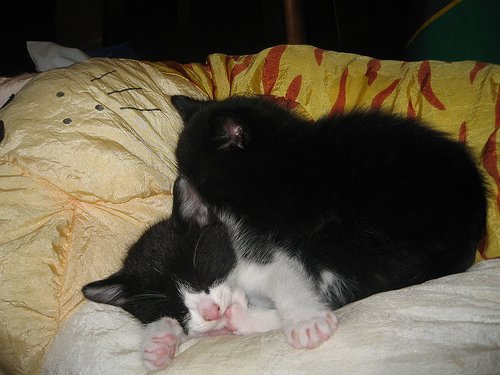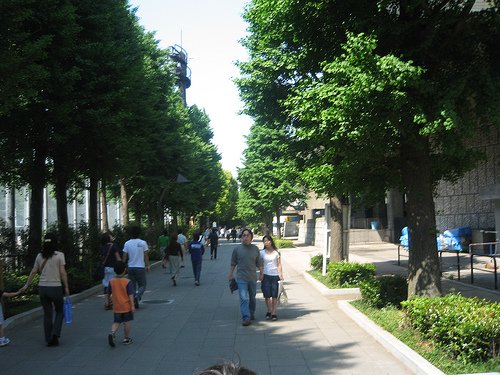Japan is a Buddhist nation, and despite many other influences such as the indigenous animistic Japanese religion of Shinto, Confucianism from China and Christianity from the West, Buddhism is really what’s at the country’s core. One observation foreigners who come to live for a time in Japan is that “everything is about death” — and there are quite a few customs, such as avoiding giving gifts in sets of four since the number can be read as “shi” which also means death in Japanese, or lighting incence at the Buddhist altar each morning, that seem to show a fixation on the subject. One word I’ve always found interesting is Hotoke-sama (ho-toe-kay sah-mah). Ostensibly the word is a reverent term for Buddha, but in practice, it’s used to refer to any deceased spirit, since Buddhism in Japan is largely about revering one’s ancestors, without whom (my wife has pointed out to me) you wouldn’t exist at all. Once, my daughter saw beautiful sakura blooming near a graveyard, and she said, “That’s so nice, the flowers are so pretty, the people buried here (the Hotoke-sama) will be so happy.”
Every day while working in Japan, I immediately know when noon has rolled around because a siren located in the center of town goes off. It’s not just any siren — it’s essentially the same type of air-raid siren that sounded half a century ago when Japan was being bombed by Allied B-29’s. The siren sounds every day at noon to let people know that it’s lunch time, but it serves some other purposes as well. First of all, it’s used to let people know when there’s a local disaster such as a fire, and hearing the siren at night means everyone should check their neighbors to make sure everything is okay. In this way, it kinds of provides a little “community glue” for the people living in our city, unconsciously making everyone feel a part of the same happy group unit, since practically everyone in our city is within hearing distance of the loud siren. When I first heard it, it was somewhat un-nerving, since it’s not a sound you normally hear outside of movies about World War II. But now it’s just a part of life in my home in Japan.
The Japanese drink a lot of tea: hot green tea, thick matcha, refreshing Chinese oolong tea, an array of Western black teas, and an endless number of blends. In the summer, perhaps no tea is consumed more than mugi cha, or Japanese barley tea, refreshing beverage made with barley that’s always served cold to combat the heat and humidity outside. When businessmen call on a client, they will be served mugi tea to refresh them while they wait, and in the J-List kitchen downstairs, barley tea is what you’ll find in the fridge (we drink it all summer long). Naturally caffeine-free, Japanese barley tea is a refreshing and totally healthy drink that’s popular throughout Japan. We just happen to have this year’s mugi cha on the site for you, which make it easy to keep barley tea handy any time, with easy to use cold-water tea bags. We hope you’ll try some!
J-List carries a great item for fans of yaoi / bishonen and all fans of great gothic style art, Animamundi – Dark Alchimist, the newest release by Hirameki International. A superb interactive game with 12 fascinating game scenarios to explore, it comes packaged with a great soundtrack/movie disc. Best of all, you can enjoy this great game not just on any standard Windows PC, but on Macs, too, since the game is fully compatible with Mac OS X. It’s in stock — order now!
















